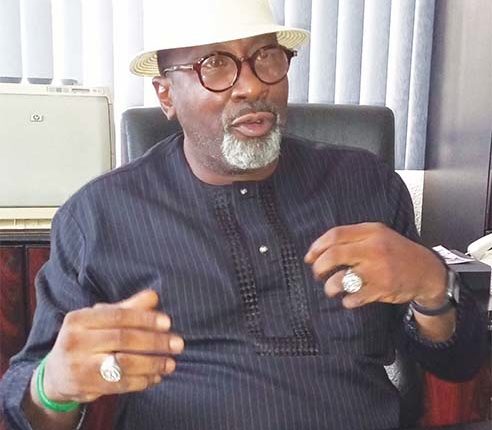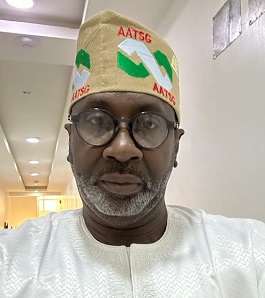President Tinubu appeals to states to prioritize needs of local communities
– By Abayomi Odunowo
President Bola Tinubu has called on state governments to prioritize the needs of local communities by ensuring accountability and effectiveness in the administration of local governments. During a meeting with the leadership of the Arewa Consultative Forum (ACF) at the Presidential Villa in Abuja, President Tinubu highlighted the importance of local governance in meeting the needs of citizens and promoting development.
Local governments are the closest form of government to the people, and as such, they play a crucial role in addressing the day-to-day needs of local communities. President Tinubu emphasized the need for state governments to empower local governments to effectively carry out their responsibilities and deliver essential services to citizens. This can be achieved through increased accountability, transparency, and effective governance structures at the local level.
By ensuring accountability and effectiveness in the administration of local governments, state governments can better address the specific needs of local communities and promote inclusive development. President Tinubu stressed the importance of providing adequate resources and support to local governments to enable them to deliver on their mandates effectively. This includes investing in infrastructure, healthcare, education, and other essential services that directly impact the lives of citizens.
President Tinubu’s appeal to state governments comes at a time when there is a growing recognition of the importance of strengthening local governance structures to promote development and improve the quality of life for citizens. By prioritizing the needs of local communities and ensuring accountability in the administration of local governments, state governments can help address the challenges faced by citizens at the grassroots level.
Effective local governance is essential for promoting social cohesion, economic growth, and sustainable development in communities across the country. President Tinubu’s call for state governments to prioritize the needs of local communities underscores the importance of ensuring that citizens have access to basic services and opportunities for growth and prosperity.
President Bola Tinubu’s appeal to state governments to prioritize the needs of local communities by ensuring accountability and effectiveness in the administration of local governments is a crucial step towards promoting development and improving the quality of life for citizens. By empowering local governments and investing in essential services, state governments can help address the challenges faced by communities at the grassroots level and promote inclusive development for all citizens.
In a constitutional democracy such as Nigeria, the responsibility of governance is shared among different tiers of government. The president’s recent call to summon the governors to enhance the revenue base of the country is a crucial step towards addressing the needs of local communities. As the leader of a diverse nation with 774 local government areas, the president’s appeal for governors to be sympathetic and considerate of the local people is a clear indication of his commitment to improving governance at the grassroots level.
The effectiveness of local governments in delivering services to the people is a topic that warrants serious consideration. While Nigeria boasts a large number of local government areas, the question remains: Are they truly effective in solving the problems faced by Nigerians? Do they work in coordination with state and federal governments to ensure the delivery of essential services and the implementation of development programs? These are crucial questions that require urgent attention and action.
As the president rightly pointed out, accountability is a key aspect of governance. Who is being held accountable for the performance of the 774 local governments? It is essential that we move beyond mere rhetoric and take concrete steps towards ensuring that local governments are held accountable for their actions and decisions. Recalibrating the existing system to better meet the needs of the people is a necessary step towards improving governance at the local level.
Education plays a crucial role in nation-building, and the president’s emphasis on the issue of out-of-school children is timely and important. The fact that there are still children in parts of Nigeria who are out of school is unacceptable and highlights the need for urgent action to address this issue. Education is a fundamental human right and a key driver of development, and it is essential that all children have access to quality education.
The president’s call for governors to enhance the revenue base of the country and consider the needs of local communities is a positive step towards improving governance in Nigeria. It is essential that we work together to ensure that local governments are effective in delivering services to the people and that they are held accountable for their actions. By focusing on education and addressing the issue of out-of-school children, we can build a stronger and more prosperous nation for all Nigerians.
As President Tinubu rightly pointed out, the issue of out-of-school children in Nigeria is simply unacceptable. Education is not only a fundamental human right, but also a powerful tool in the fight against poverty. Many of us have been privileged to receive an education, and it is our duty to use this education to serve the people and improve their conditions.
The backbone of Nigeria’s economy is its education system, and it is imperative that we work together to strengthen and develop it. Collaboration is key in ensuring that every child has access to quality education, regardless of their background or circumstances.
President Tinubu also addressed the pressing issue of infrastructure decay and poverty in the country, particularly in the northern regions. These trends must be eliminated if we are to truly build a prosperous and thriving Nigeria.
On the topic of security, President Tinubu emphasized the importance of investing in technology to protect the citizens of Nigeria. Security is a basic human need, and every effort must be made to ensure the safety and wellbeing of all individuals.
It is clear that collaboration and investment in education, infrastructure, and security are essential in building a brighter future for Nigeria. President Tinubu’s commitment to addressing these issues is commendable, and it is up to all of us to work together towards a better and more prosperous Nigeria.
The AKK project, the dredging of the River Niger, and improvements to port access and infrastructure nationwide are crucial steps towards a more prosperous Nigeria. These initiatives will not only shorten travel time, but also boost trade and commerce, leading to economic growth. However, to fully realize the benefits of these projects, the issue of insecurity must be addressed.
Insecurity hinders economic activities, discourages investments, and disrupts daily life for many Nigerians. By creating a safe environment, people can make a decent living anywhere in the country, promoting stability and prosperity. The government must prioritize security measures to protect its citizens and ensure a conducive climate for business and development.
In addition to infrastructure projects, the president highlighted the importance of improving animal husbandry in Nigeria. Dairy farming has the potential to significantly boost the economy, but it requires collaboration between herders, states, and the government. By investing in this sector and providing support to herders, Nigeria can emulate the success of other countries in developing its livestock industry.
Overall, national unity and continued support for the government are essential in overcoming long-standing challenges and achieving progress. By working together, Nigeria can build a brighter future for all its citizens.
Otunba Abdulfalil Abayomi Odunowo
National Chairman AATSG
Mobile: +2349053535322





